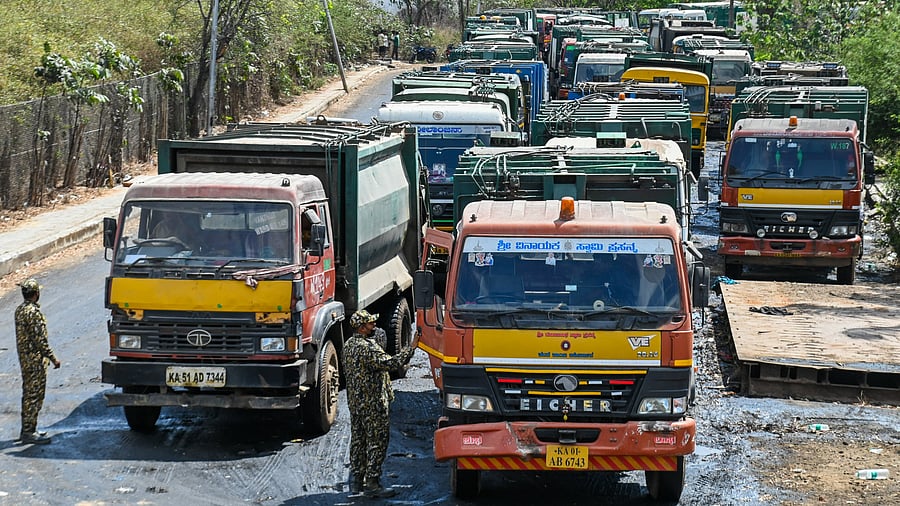
Over 300 garbage-loaded lorries wait to dump garbage at the Mitaganahalli landfill on Wednesday. They are stranded there since Tuesday, following a protest against the dumping of waste by the Kannur gram panchayat members.
Credit: DH PHOTO/MS MANJUNATH
Bengaluru: Bengaluru Solid Waste Management Ltd (BSWML) is expected to earn an additional Rs 600 crore annually by levying user fees for door-to-door garbage collection.
The user fee will further strain household budgets.
Some civic leaders have demanded a white paper on the accounts of both the Bengaluru Solid Waste Management Ltd (BSWML) and the Bruhat Bengaluru Mahanagara Palike (BBMP).
Established in July 2022, the BSWML is responsible for the collection, transportation, and disposal of the 6,000 tonnes of waste generated in the city daily. It spends about Rs 550 crore on auto tippers involved in waste collection; the annual expenditure on waste disposal has increased over the years.
Anil Nachappa, a spokesperson for the Aam Aadmi Party (AAP) in Bengaluru, urged the government to understand the impact of the user fee on common citizens.
"The deputy chief minister may think that he can create facilities similar to those in London or Paris by charging the user fee. But, in reality, can the people of Bengaluru afford to pay it?" he asked.
Nachappa pointed out that it would further burden the middle class, already saddled with multiple EMIs.
Srikanth Narasimhan, founder of the Bengaluru NavaNirmana Party (BNP), said his party was completely opposed to the user fee.
"Citizens are already paying multiple taxes, but we have no information about how this money is spent. Unless the authorities provide proper accounts, we will not support additional taxes," he noted.
A solid waste management expert stated that neither the BBMP nor the BSWML had spent the money sensibly so far. "After charging citizens so much, what are they giving back? Ideally, the money should be spent on building biogas plants, improving the working conditions for pourakarmikas, opening dry waste collection centres, and establishing composting units at the ward level. But what we get in return are village development projects, dumping waste in landfills, and administrative costs. This is not justifiable."